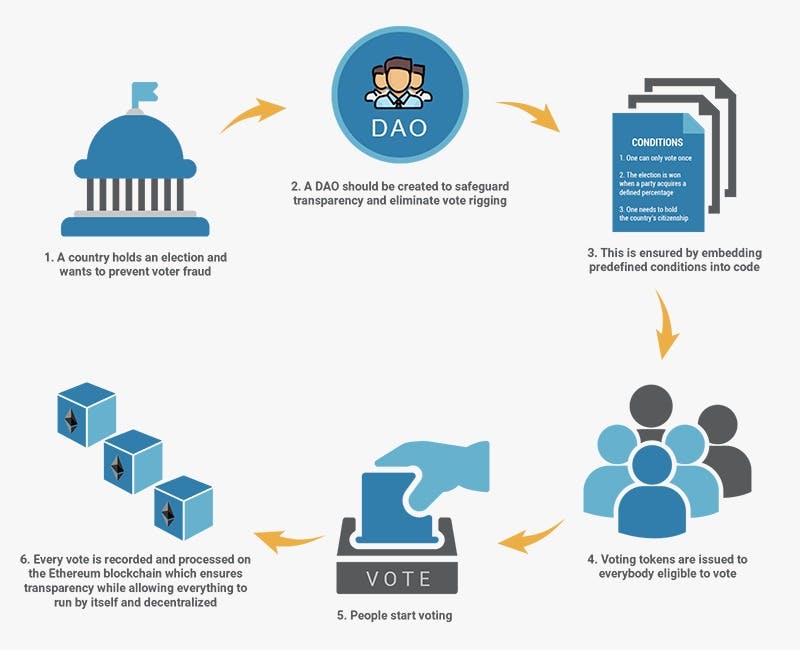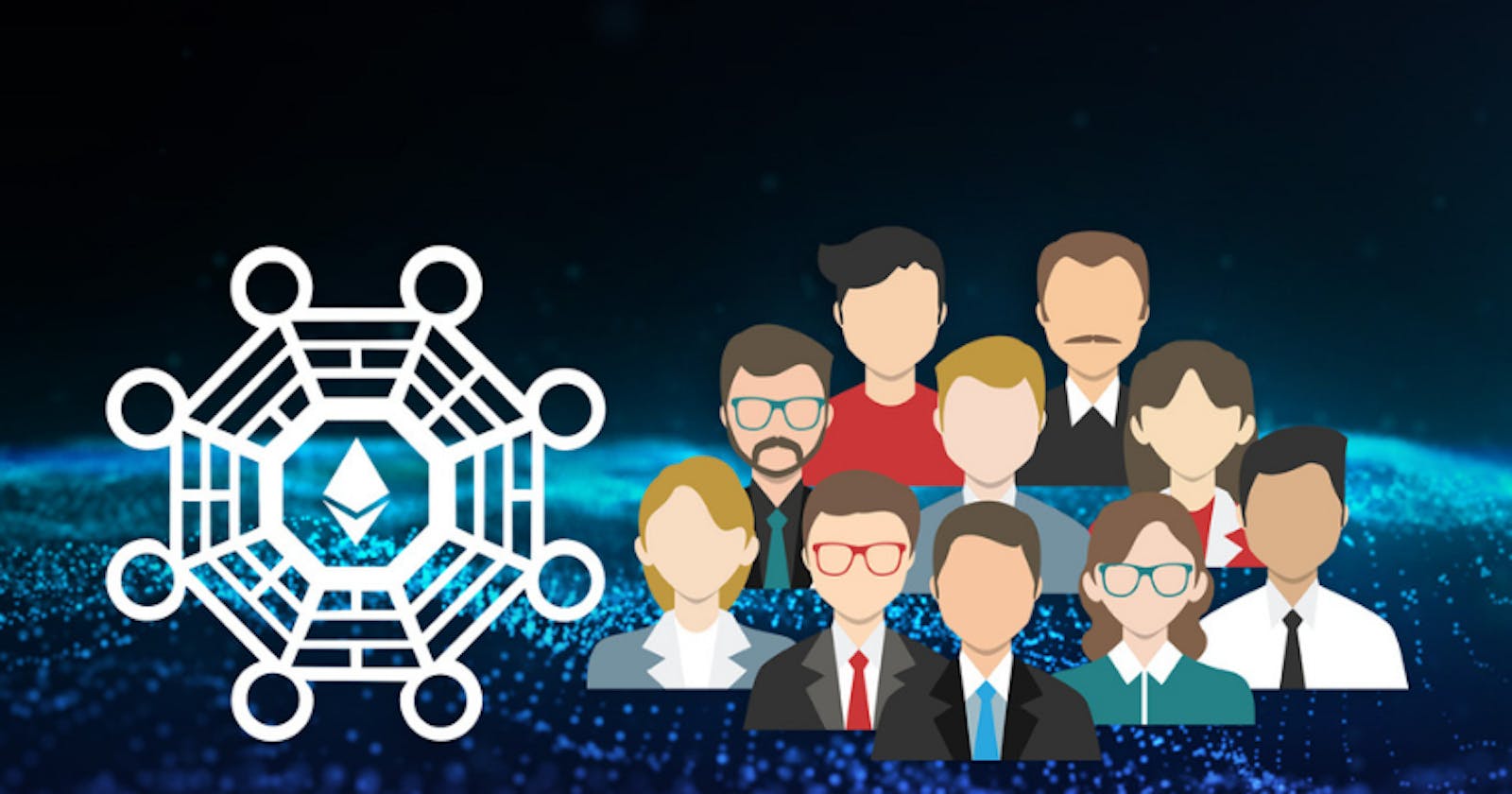From Metaverse to an uncountable number of Cryptocurrencies, the steep rise of the unconventional tech industries has certainly marked the commencement of the movement of mankind into the world of Web 3.0
When the word Web 3.0 pops up in any conversation, there are certain accompanies that slide along with it, to name some that are currently grabbing eyeballs, DAOs is something that cannot be missed. DAOs, a short slang-looking word has taken the world of Web 3.0 by surprise with its rapid advancement. But what exactly are DAOs? To get a gist of the meaning of DAOs in simple terms, read on!
What exactly are DOAs?
Decentralized Autonomous Organization is abbreviated as DAO. The DeFi blast in 2020 has prompted the expanded notoriety of DAOs. In simple terms, DAOs, or decentralized autonomous organizations, are tech-native organizations that are administered and operated by groups adopting explicit decision-making protocols. It is an organization that is not under the direction of a single individual. Despite Conventional organizations, DAOs employ blockchain technology to allow everyone in the group to participate in crucial governance and asset management practices, and this process is known as community banking. The fundamental idea behind DAOs is to let a broad group of contributors engage in the administration and growth of the organization.
Why DAOs and how it actually works?
A Decentralised Autonomous organization is one in which decisions are made from the ground up by a group of members. A DAO can be joined in a number of ways, the most common of which is through the ownership of a token.

Smart contracts, which are essentially bits of code that execute automatically when a set of criteria is met, are used by DAOs. Smart contracts are now used on a variety of blockchains, while Ethereum was the first to do so. The DAO's regulations are established by these smart contracts. Those who own a share in a DAO are given voting rights and have the ability to influence how the company functions by voting on or proposing new governance proposals.
This model precludes suggestions from being sent to DAOs: A proposal will only be approved if the majority of stakeholders agree with it. The method for determining that majority varies from DAO to DAO and is described in the smart contracts.
DAOs are completely self-contained and transparent. Anyone may see their code because they are built on open-source blockchains. Because the blockchain records all financial transactions, anyone may audit their built-in treasuries.
Applications of DAOs
DAOs have been utilized for a variety of reasons thus far, including investing, donation, campaigning, financing, and buying NFTs, and all without the involvement of brokers. So that you may get a better picture, a DAO, for instance, can accept funds from anybody in the entire globe, and its users can select how the money is spent.
The foundation of a DAO is its shrewd agreement. The agreement characterizes the principles of the association and holds the gathering's depository. When the agreement is live, nobody can change the principles besides by a vote. In the event that anybody attempts to accomplish something not covered by the principles and rationale in the code, it will come up short. What's more, in light of the fact that the depository is characterized by the brilliant agreement too, that implies nobody can spend the cash without the gathering's endorsement. This implies that DAOs needn't bother with a focal power. Rather the gathering settles on choices all in all and installments are approved naturally when votes pass.
The Future
DAOs presently work in a shelter where they have clear administration benefits and yet are dependent upon extreme constraints from their absence of lawful personhood. The vital development of DAOs as a lawful build will probably carry with it expanded guidelines as they become more acknowledged as a standard hierarchical structure and directed like one - e.g., with DAO tokens being treated as protections. It would be more than made up for in the event that DAOs would partake in the advantages of legitimate personhood, permitting them to possess property and go into contracts straightforwardly without the complex lawful vaulting needed to give them true viability today. Similarly, as with all innovative advances worth sustaining, DAOs will keep on becoming greater, more grounded, and more different.
As crypto projects proceed to develop and disperse administration, DAOs will keep on expanding significantly. Today, numerous DAO structures are as yet constrained by the establishing group and a little gathering of financial backers.
Learning more about DAOs
Getting to know more about DAOs and their working is not one-time work, if you truly want to expand your skillset in the field of it you need to regularly stay updated with the happenings in and around DAOs. One great way to start adding to your knowledge is to attend various webinars and sessions that are being conducted on this topic, one such webinar that will be extremely exciting and interesting to attend is Polkadot India's DAO Chapter of DotFriday happening on 21st January at 6 PM IST.
The speaker panel includes global leaders working diligently on DAOs, if you wish to interact with them and get real-world insights on DAO then register now on- lu.ma/df_jan?tk=jhmRFu

